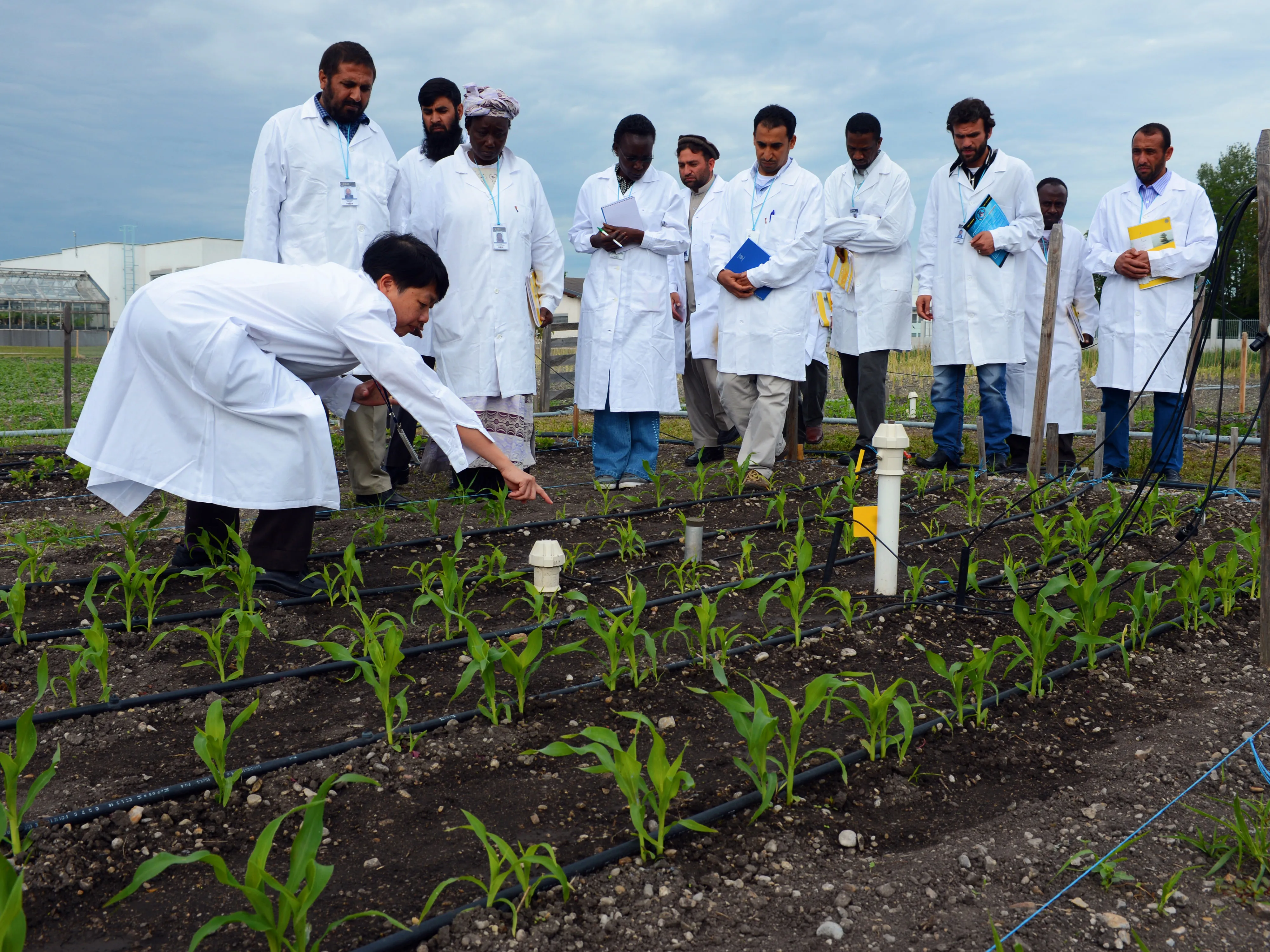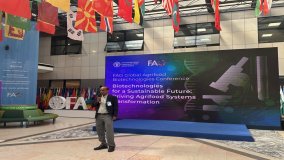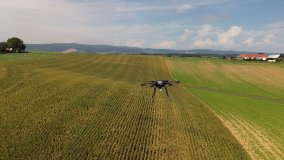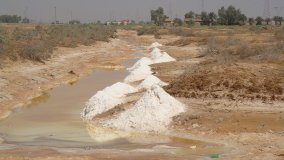Improving farming systems’ resilience to the impact of climate change
The Section and its laboratory in Seibersdorf, Austria, develop and validate a wide range of isotope and nuclear techniques to monitor the interactions of soil, water and nutrients for their efficient use in cropping systems, including through fallout radionuclide techniques and compound-specific stable isotopic techniques. The former group of techniques is used to assess the magnitude of soil erosion and the impact of soil conservation measures on soil erosion, while the latter helps identify sediment sources and apportion their contributions from different land uses on an area-wide scale.
Through the laboratory, the Section also develops methodology to maximise outputs from crop production systems, increase soil organic carbon sequestration and minimize the emission of nitrous oxide. In addition, it uses information technology packages to assess the performance of different irrigation water management technologies and to determine crop water requirements to increase crop water productivity and area-wide water use efficiency.
These services are complemented by technical support and training courses delivered to Member States, allowing them to develop strategies for sustainable agriculture that minimize land degradation while at the same time adapting to climate change.



